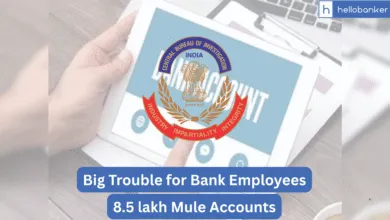RBI imposes Loan Sanction Ban on Four NBFCs for Charging Excessive Interest Rates

| ➡️ Get instant news updates on Whatsapp. Click here to join our Whatsapp Group. |
In a major regulatory move, the Reserve Bank of India (RBI) has barred four non-banking finance companies (NBFCs), including two microfinance institutions (MFIs), from sanctioning and disbursing loans due to their practice of charging exorbitant interest rates. The affected companies—Asirvad Microfinance, Arohan Financial Services, DMI Finance, and Navi Finserv (founded by Flipkart’s Sachin Bansal)—have been prohibited from issuing new loans starting October 21, 2024.
The RBI’s action stems from concerns about the companies’ Pricing Policies, which included inflated Weighted Average Lending Rates (WALR) and excessive interest spreads over their cost of funds. These practices were found to be in violation of regulatory guidelines.
Warning on Excessive Returns
RBI Governor Shaktikanta Das, during his monetary policy statement on October 8, had warned NBFCs and MFIs against chasing excessive returns on equity. He expressed concern over usurious interest rates, high processing fees, and unreasonable penalties imposed on borrowers. “Such practices are not just unfair but place a burden on the very borrowers the microfinance sector seeks to support,” Das stated.
Detailed Inspections
The RBI had conducted comprehensive inspections of NBFC-MFIs earlier this year, focusing specifically on their pricing policies. Industry sources confirmed that the inspections revealed a pattern of charging unjustifiably high interest rates to borrowers.
“Despite several warnings and efforts by the RBI to ensure fair pricing practices, these NBFCs continued their unfair and usurious lending practices, necessitating the recent ban,” said an industry insider.
In addition to charging excessive interest rates, the RBI’s inspections uncovered several regulatory violations, including non-compliance with guidelines for assessing household income, improperly calculating repayment obligations, and the evergreening of loans. These issues were compounded by concerns over the management of gold loan portfolios and outsourcing of core financial services.
Regulatory Crackdown on MFIs
This is not the first time the microfinance sector has come under scrutiny. Earlier this year, RBI Deputy Governor M. Rajeshwar Rao had criticized MFIs for charging high interest rates, disproportionately increasing their profit margins, and leading to the financial overburdening of low-income borrowers.
Following these warnings, industry self-regulatory bodies, including the Microfinance Industry Network (MFIN) and Sa-Dhan, introduced measures to curb over-leveraging. These measures included limiting the number of lenders per borrower to four and capping total microfinance debt at ₹2,00,000.
Next Steps for Affected NBFCs
While the RBI’s ban prevents these NBFCs from issuing new loans, they are permitted to continue servicing existing customers and managing collections. The regulator has indicated that the restrictions will remain in place until these companies demonstrate adherence to regulatory guidelines, particularly in the areas of pricing policies, risk management, customer service, and grievance redressal.
The RBI’s move sends a strong message to the microfinance sector, emphasizing the need for responsible lending practices that protect borrowers from financial exploitation. The regulator has urged NBFCs to ensure fair, transparent, and reasonable pricing, particularly for small-value loans aimed at low-income households.
